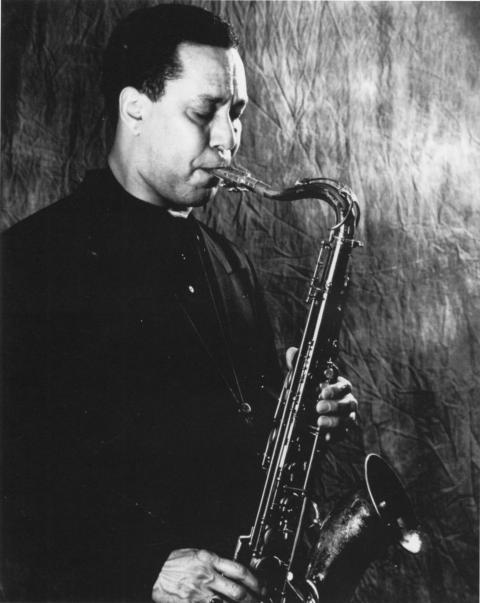Faculty Profile - Bill Pierce
Playing with the Masters

Bill Pierce
Sitting in his office overlooking Boylston Street, saxophonist and Woodwind Department Chair Bill Pierce tells me that he has no plans to make a new CD anytime soon. "There is a glut of music out there, and I don't want to add to it unless I come up with something that I really want to do," he says without a hint of negativity. Such frankness and self-restraint are hallmarks of a mature and experienced musician and part of what make Pierce a great teacher and player.
He has enjoyed a long and distinguished career as a music educator and performer. Pierce has been a Berklee faculty member for over two decades and has performed with some of the indisputable masters of jazz—Freddie Hubbard, Tony Williams, Art Farmer, Hank Jones, James Williams, and Art Blakey, to name a few. Pierce's sinewy tenor and soprano saxophone lines can be heard on 70 albums on which he was a sideman and on 11 of his own recordings.
He was raised in Florida by parents who were both educators. The household valued music and Pierce and his siblings each learned an instrument. He took up the saxophone as a child and started out listening to records by Dave Brubeck. Later he was drawn to the music of John Coltrane and Cannonball Adderley. Since he was only 16 when he graduated from high school, his parents steered him toward a college in the South so he wouldn't be too far from home. After he turned 18, he transferred to Berklee and has made Boston his home base ever since.
At Berklee during the late 1960s, Pierce went for total immersion in music, studying jazz during the day and gigging at night. For two years, he played steadily at the Sugar Shack, a now defunct club on Boylston Street opposite the Boston Common where all of the top r&b acts used to play. "That place was the r&b Mecca of Boston," recalled Pierce. "The house band had a bunch of great musicians in it, some of whom later became well known. Back then, Motown artists and acts like the Stylistics, the Dells, the Temptations, and the Supremes used to work clubs. It was wonderful to play the real thing the way I think that music is supposed to be played—with the audience right there. I really learned how to be a musician then, attending Berklee during the day and getting hands-on experience at night."
Pierce interrupted his studies for a short time to tour with Stevie Wonder. He subsequently returned to graduate and then became a part-time member of the faculty in 1975. He focused on playing jazz locally until the night he sat in with drummer Art Blakey's group. "I had some friends in Blakey's band who told me I should come down to sit in," said Pierce. After hearing him, Blakey asked him to join the band. That gave Pierce stature in the jazz world and kept him on the road about 10 months a year for nearly three years. "It was one of the best times of my life, being young and playing music all night and then hanging out all day. We went all over the world, North and South America, Asia, and Europe."
Pierce later teamed up with the late great drummer Tony Williams and made five recordings with him. "Playing with Tony was the highlight of my musical career in a lot of ways," Pierce said. "He was an idol of mine when I was younger so playing with him was special. I don't think I have ever played with anyone more intense than him. When he got behind the drums he was nothing but business, and the business was music. Having worked with Max Roach, Roy Haynes, Art Blakey, Alan Dawson, Elvin Jones, and Tony, I've gotten to play with some of the best drummers in modern jazz. They had a certain special thing that only comes around now and then. These guys were masters and originated a lot of things that continue to be a big part of what is going on in jazz. I was very fortunate to be able to play with them."
Pierce told me that he awaits no innovation to sweep the jazz world. "Art music will evolve—that is the nature of music that starts out being something other than a commodity. Innovation is an organic process and is not something that you can decide to do. It happens when someone shows up with something that is fresh and worthwhile. Musicians have to be a part of their own generation and culture, but the history of the music should be strong enough that it will always be a part of the new developments."
Returning to the subject of the CD that he is in no hurry to make, Pierce confides that he does have one album concept he'd like to realize. "Like all jazz musicians, my dream is to do something with strings. I would make it a little more integrated than just presenting a soloist with the strings playing whole notes behind him. I haven't heard it in my head yet; when I do, maybe it will happen." Those familiar with Pierce's artistry hope that he will hear it sometime soon.




